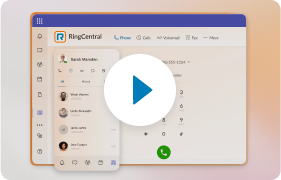As businesses, schools, and other organizations gradually reopen, contact tracing will be critical to maintaining potential COVID-19 outbreaks.
Sure, local public health departments already conduct contract tracing at a wide scale, but they lack the personnel to manage it at every level. The onus is placed on organizations to identify and notify anyone who was possibly exposed.
Here are some steps to do contact tracing right:
Implement contact tracing technology
Manual processes won’t cut it. Organizations need technology that has the intelligence and automation needed to quickly reach people who may have been exposed to COVID-19 and ask them to take a test and self-isolate. Some technologies you can implement to assist with contact tracing include:
1. A self-screening app or form
Before people go to the office or school, organizations can require people to answer questions daily on an app or form to assess whether they’re symptom-free. If employees have symptoms, leaders can direct them to get tested and stay home.
2. Proximity trackers
Some organizations have equipped employees with proximity trackers on lanyards to alert them of when they get too close to each other and violate social distancing guidelines. Similarly, employee movements can be recorded so if one worker comes down with the virus, companies can review which employees came in close contact with the worker and request that they get tested, too.
3. Contact center and unified communications software
These applications allow companies and schools to quickly deploy contact tracing. For example, unified communications tools automate contact tracing tasks such as automatically dialing or sending text messages to people while keeping personal information strictly confidential.
As contact tracing needs change, those tools can also scale up or down at a moment’s notice with no disruptions to mission-critical operations.
4. Contact tracing software
Contact tracing software, such as the software provided by Chexout, provides organizations the tools they need to perform investigations throughout the workplace. The software can integrate with different data sources including information from proximity trackers to assist with contact tracing or receive test results electronically and automatically notify local health departments of positive results.
Staffing a contact tracing team
Companies and schools have different approaches to staffing a contact tracing team. Some turn to existing staff who already work with employees such as HR and have them conduct contact tracing outreach. Other organizations augment their internal staff with outsourcing firms, which gives organizations the flexibility to scale up or scale down staffing needs as the situation changes.
In either model, training workers on how to contact trace and providing them the tools with which to communicate and collaborate with one another are key components to a successful contact tracing program.
How communications tools streamline contact tracing
Unified communications and contact center solutions play an essential role in contact tracing and public safety.
As a cloud-based tool, unified communications can be deployed within days. Its pre-built integrations and open APIs enable it to work with applications such as Chexout, providing organizations with a complete solution for fast and effective contact tracing.
The contact center autodialer can execute calling and voicemails while routing live calls to human contact tracers. And if a contact tracer leaves a voicemail and the person calls back, the system’s smart routing capabilities ensure that the return call is directed to the same contact tracer.
It’s not just about features, however. Unified communications and contact centers such as RingCentral are quick for IT teams to deploy and simple for contact tracing teams to implement. Certification with HITRUST also ensures all complete patient confidentiality and compliance with HIPAA regulations.
With the right communications tools, organizations can supercharge their contact tracing efforts and accelerate their return to normal operations.
Updated Jun 24, 2024












